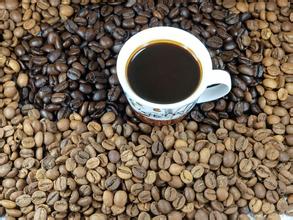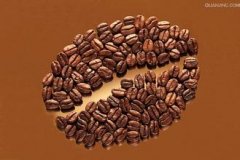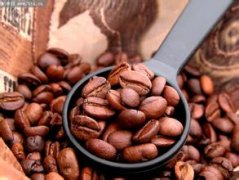A brief introduction to the market price of pure slightly sour Salvadoran coffee varieties

El Salvador is one of the small countries in Central America, where coffee is light, aromatic, pure, slightly acidic, and the flavor characteristics are excellent balance, which is a specialty of Central America. It has sour, bitter and sweet taste characteristics, and the best baking degree is moderate and deep.
Origin of Coffee
In the early 1990s, guerrilla warfare greatly disrupted the country's national economy, reducing coffee production from 3.5 million bags in the early 1970s to 2.5 million bags in 1990 - 1991. The eastern part of the country was most affected by guerrilla warfare, and many farmers and workers were forced to leave their estates. The shortage of funds has caused coffee production to plummet, from 1200 kilograms per hectare in the past to less than 900 kilograms per hectare today.
In addition, in 1986 the Government imposed an additional 15 per cent duty on coffee exports, i.e. 15 per cent on top of the existing 30 per cent tax. Taxes, combined with unfavourable exchange rates, severely reduced coffee exports and, with them, quality.
The government finally realized the huge role of coffee in the national economy, such as employment, foreign exchange and agricultural production, so in 1990, it privatized part of the coffee export industry, hoping to increase the yield of coffee in the export market.
Today, this coffee accounts for 40% of the country's exports. The best quality coffee is exported from January to March, and 35% of the extra hard beans are exported to Germany.
In the early 1990s, guerrilla warfare greatly damaged the country's national economy, reducing coffee production from 3.5 million bags in the early 1970s to 2.5 million bags in 1990 - 1991. The eastern part of the country was most affected by guerrilla warfare, and many farmers and workers were forced to leave their estates. The shortage of funds has caused coffee production to plummet, from 1200 kilograms per hectare in the past to less than 900 kilograms per hectare today. In addition, in 1986 the Government imposed an additional 15 per cent duty on coffee exports, i.e. 15 per cent on top of the existing 30 per cent tax. Taxes, combined with unfavourable exchange rates, severely reduced coffee exports and, with them, quality.
The government finally realized the huge role of coffee in the national economy, such as employment, foreign exchange and agricultural development, so it privatized part of the coffee export industry in 1990, hoping to increase the yield of coffee in the export market.
In Cuscacbapa, El Salvador, coffee beans are packed and ready for export.
Salvadoran coffee is a Central American specialty, light, aromatic, pure and slightly acidic. Like Guatemala and Costa Rica, coffee in El Salvador is graded according to altitude, with the higher the altitude, the better the coffee. The best brand is Pipil, the Aztec Mayan name for coffee, which has been approved by the Organic Certified Institute of America. Another rare coffee is Pacamara, a hybrid of Pacas and Maragogype. The coffee is best grown in western El Salvador, adjacent to Santa Ana, near the border with Guatemala. Pakmara coffee grains are full, when the aroma is not too strong.
El Salvador is tied with Mexico and Guatemala as the producer of Asa and Meldo, and is competing with other countries for the top one or two places in Central America. Highland origin, for the size of large coffee beans, fragrant taste mild. Like Guatemala and Costa Rica, coffee in El Salvador is graded according to altitude, with the higher the altitude, the better the coffee, and divided into three grades according to elevation: SHB (strictly high grown)= high, HEC (high grown central)= medium high, CS (central standard)= low; the best brand is Pipil, the Aztec-Mayan name for coffee, which has been approved by the Organic Certified Institute of America.
Salvadoran coffee
Important Notice :
前街咖啡 FrontStreet Coffee has moved to new addredd:
FrontStreet Coffee Address: 315,Donghua East Road,GuangZhou
Tel:020 38364473
- Prev

A brief introduction to the treatment method of grinding degree and baking degree of fragrant Salvadoran coffee
Salvadoran coffee ranks side by side with Mexico and Guatemala as the producers of Asa and Merdo, and is fighting for the top one or two places in China and the United States with other countries. The highlands of origin are large coffee beans of all sizes, which are fragrant and mild in taste. Like Guatemala and Costa Rica, coffee in El Salvador is graded according to altitude, and the higher the altitude, the better the coffee
- Next

A brief introduction to the climate and altitude of the long-lasting coffee cultivation in El Salvador
As soon as the extraction is over, I can't wait to take a sip. Strawberry, brown sugar, faint spice, and then two more sips. The creamy taste can be described as slippery with an advertising phrase. This country is a small coffee-producing country, which is very suitable for honey treatment and solarization. On the whole, honey treatment and sun treatment have also given a new soul to El Salvador. The lasting taste of Huiyun
Related
- Detailed explanation of Jadeite planting Land in Panamanian Jadeite Manor introduction to the grading system of Jadeite competitive bidding, Red bid, Green bid and Rose Summer
- Story of Coffee planting in Brenka region of Costa Rica Stonehenge Manor anaerobic heavy honey treatment of flavor mouth
- What's on the barrel of Blue Mountain Coffee beans?
- Can American coffee also pull flowers? How to use hot American style to pull out a good-looking pattern?
- Can you make a cold extract with coffee beans? What is the right proportion for cold-extracted coffee formula?
- Indonesian PWN Gold Mandrine Coffee Origin Features Flavor How to Chong? Mandolin coffee is American.
- A brief introduction to the flavor characteristics of Brazilian yellow bourbon coffee beans
- What is the effect of different water quality on the flavor of cold-extracted coffee? What kind of water is best for brewing coffee?
- Why do you think of Rose Summer whenever you mention Panamanian coffee?
- Introduction to the characteristics of authentic blue mountain coffee bean producing areas? What is the CIB Coffee Authority in Jamaica?

